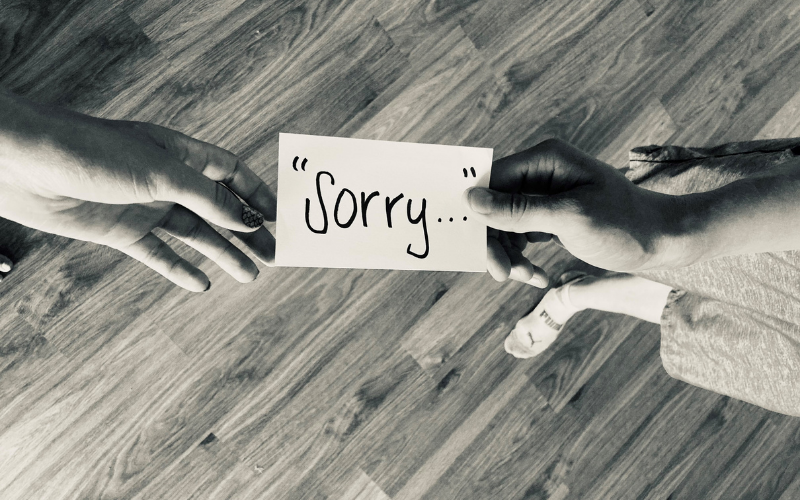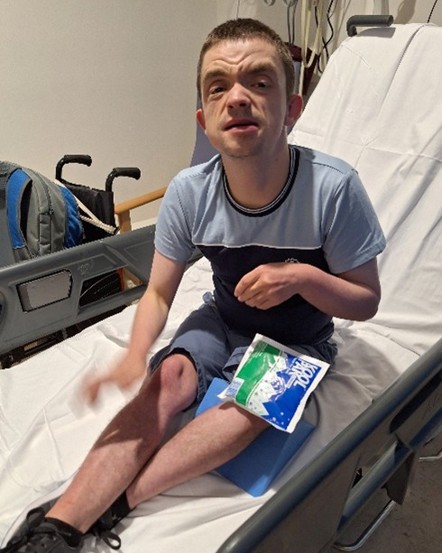I’m Sorry

Micah Pederson
I am a mom to two children biologically and many children through foster care. My husband and I have been married three years. Our foster home is a sp...

“I’m sorry” is one of the most popular phrases uttered to families touched by disability. These words generally come from those who do not understand, cannot relate, or simply don’t know what else to say.
“Your child has a disability? “Oh, I’m sorry.”
“You have more than one child with disabilities? I am SO sorry.”
“Your child is having another surgery? Sorry!”
“Your child cannot speak? Cannot walk? Looks different that some children? Doesn’t meet milestones in the same way others sometimes do? I am so, so, so so SORRY.”
Often, these words are spoken by kind, well-intended people who truly have compassion. While their words can rub caregivers and parents like me the wrong way, I understand that they are not meant to devalue my children or the life we live, they are simply trying to be in touch with what we may be experiencing or could feel we are unfairly subjected to. I understand that perspective, I do.
However, there is another category of those whom the “I’m Sorry” rivers run out of. There are people who do not value my children, who think my children’s lives—their very existences—are unfortunate events that others must tsk their tongues and heave pity in the direction of. As I’ve tried to have conversations with these people and allow them to get to know my unique family and my wonderful children who happen to have disabilities, it seems clear those people do not want that. They would rather stand on the sidelines, shake their heads, and feel sorry for us. That is profoundly and deeply sad to me. I cannot help but think of all these dear people miss out on as they stand by this approach to something they can’t quite understand. So, I in return, say:
Well…I’m not sorry. At least not sorry for me. I wouldn’t trade the life I live or the children I love for the entire world served to me on a rose gold platter (because I like rose gold better than silver).
But I suppose *I* am sorry, too.
Really sorry.
I’m so sorry, in fact, that it makes my heart ache.
I’m sorry for YOU.
I’m sorry you miss out on the rich relationship you could have with my children because you refuse to see them as worthy.
I’m sorry for the laughter you miss out on by choosing to not associate with my child who is the kind of jokesters.
I’m sorry for the snuggles you miss out on because you see my precious baby as untouchable.
I’m sorry you are so caught up in your own comfort that you miss opportunities to learn and expand the diversity of your experiences.
I’m sorry that you have such skewed ideas of achievement that you don’t get to share in the purest kind of rejoicing and epic parties we throw over accomplishments big and small.
I’m sorry that you spend so much time being curious about my children’s medical conditions that you miss out on THEM.
I’m sorry you miss out on the blessing of leaning in close and stepping into the beauty unfamiliar to you.
I’m sorry that you choose to keep your bubble so small and so impenetrable.
I’m sorry you don’t experience the beauty of deepest grieving because you choose not to love vastly enough to produce that kind of grief.
I’m sorry *you* feel sorry for *us.*
I’m sorry you see inconvenience instead of our joy in taking it slow, exhaustion instead of the miracles that unfold in the midnight hours we are awake for, brokenness instead of the world’s most pure, raw, captivating kinds of beauty.
I’m so sorry that for now, my feeling sorry for you is not something you can understand.
But I have hope and faith that someday, you will truly see beyond your veil of pity. One day, may you be overwhelmed by the beauty of diversity and the unquenchable nature of the human spirit you behold among those whom you once could not understand.
That day is coming, friend.
You will see.
And on that day, your “I’m sorry” will change to “Let me join you.”


